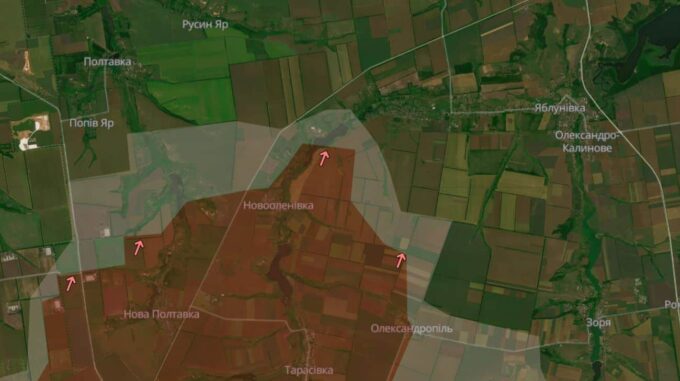The Threat in Donetsk is Escalating: Russian Troops Have Advanced Closer to Civilian Settlements

The evening of May 22 was marked by a new escalation in the situation in Donetsk, where military analysts and sources from operational reports reported the advancing of Russian occupation forces near residential areas and strategic points in the region. According to data published by the analytical project DeepState, Russian troops conducted flanking maneuvers and broke through defenses near two settlements—Yablunivka and Nadiiivka—causing serious concern among Ukrainian military personnel and local residents. The source of this information is the analytical project DeepState, which, based on open and closed data, asserts that the enemy's advance occurred precisely near these settlements, clarifying: "The enemy has moved close to Yablunivka and Nadiiivka." This indicates that Russian forces have stepped up their activities in this sector of the front, possibly to expand territorial gains or to create additional tactical nodes for further offensives. This news contrasts with previous reports and analyses, in particular, with the data from the UK Ministry of Defense published on May 17. Official UK reports state that over the past month, Russian troops demonstrated limited tactical gains in eastern Ukraine, notably near Kostiantynivka—a city that has long remained a key element of Ukraine’s defense in this sector of the front. According to these data, minor tactical successes by the Russian army were observed in areas where intense fighting was ongoing, but no significant strategic advantage was gained by the end of May. However, the new advances near Yablunivka and Nadiiivka raise serious concerns about further escalation, as such changes could indicate the mobilization of additional resources and a shift in the enemy’s tactics in this part of the front. Meanwhile, Ukrainian military forces and local authorities are increasing monitoring efforts and preparing for possible new complex developments. According to official information, Ukrainian units remain in a state of high combat readiness, with enhanced protection for strategic facilities and residential areas in the region, aiming to prevent further enemy advances. In light of this situation, the international community is once again calling for increased support to Ukraine, including provision of weapons and intelligence assistance, to halt the progress of Russian troops and prevent potential humanitarian catastrophes in the vulnerable areas of Donetsk. It is important to note that the conflict remains dynamic, and its development depends on numerous factors, including the internal political situation in allied countries and the capacity of the Ukrainian army to effectively counter the aggression. Recent events highlight the need for ongoing monitoring of the situation and efforts toward diplomatic conflict resolution, as further advances by occupying forces could lead to even more tragic consequences for civilians and drag Ukraine into a protracted and intense struggle for sovereignty.

